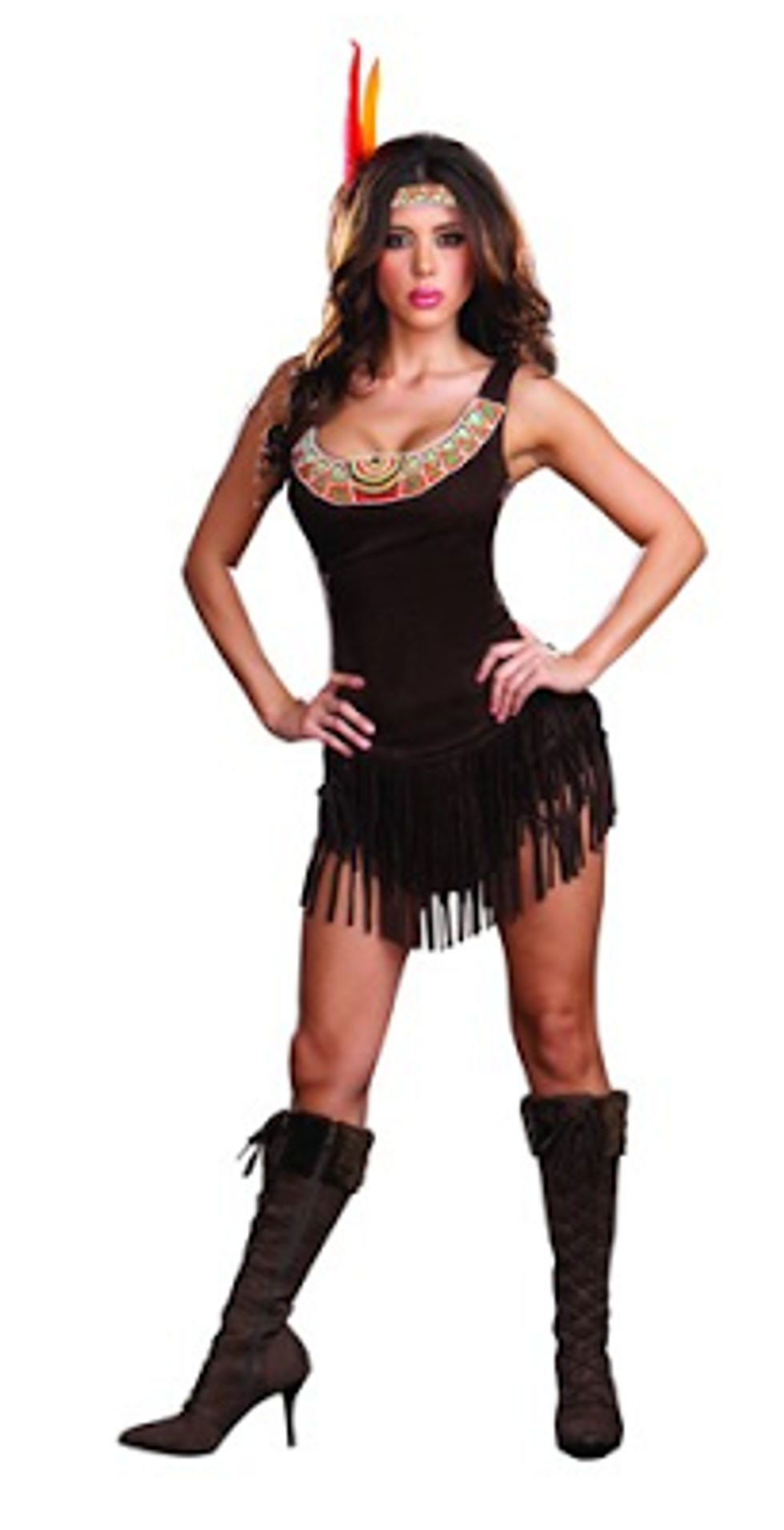With Halloween right around the corner, I figured it would be a good time to shed some light on cultural appropriation.
What is Cultural Appropriation
cul·tur·al
of or relating to the ideas, customs, and social behavior of a society.
synonyms: ethnic, racial, folk; societal, lifestyle
ap·pro·pri·a·tion
noun
the action of taking or using (something) for one's own use especially in a way that is illegal, unfair, etc.
Cultural Appropriation
The adoption of elements of one culture by members of a different cultural group, especially if the adoption is of an oppressed people's cultural elements by members of the dominant culture.
Don't be fooled.
Cultural appropriation doesn't have to be a bad thing. If done correctly, it can actually be a positive thing. Something that shows appreciation for a culture, for example, is accepted. Let's be honest though, how many people that are planning on dressing up as Indians for Halloween are doing it out of appreciation for the Native American culture?
Why is Cultural Appropriation Happening?
If you're asking yourself why cultural appropriation is a thing, here's why.
Ignorance.
When someone dresses up as an Indian, they probably don't realize that he is dressing according to harmful and hurtful, incorrect, stereotypes. No indian woman ever wore an outfit like this one.
The types of costumes put on the market by costume companies (which, by the way, use culturally appropriated costumes as a mean for gaining profit) turn REAL, sometimes oppressed cultures into sexualized, fantasized, or even imaginary cultures/people. When a costume gives a culture unrealistic stereotypes, as done to Native people above, a gateway is opened up for people to group the culture and it's people in a category of fantasy characters, such as fairies, princesses, and cartoon characters.
As for why it is ignorant in an even more serious matter than just placing stereotypes onto a culture (yes, it gets more serious), specifically for the Native American culture, ask yourself why you are dressing up as someone from a culture that was systematically exterminated from our land by white people.
The same type of cultural appropriation can be done when people choose to dress as Eskimos, Geishas, Mexican, Gangster, etc. The list goes on and on. Instead of listing every single offensive halloween costume you could possible wear, just ask yourself these questions:
1. Is your costume racially, ethnically, or culturally based?
If it is, it's probably inappropriate.
2. Do you belong to that group of people?
If you don't, let me remind you. You can't just borrow somebody's culture for a day. It doesn't work that way.
As the recent Ohio University campaign states clearly on all of their posters "You wear the costume for one night. I wear the stigma for life." (Check out the campaign here.)
3. Would you wear that costume around that group of people?
Halloween is not an exception. It’s not a day to be as disrespectful and hurtful as you wish without consequences. Don’t wear the costume if you would be ashamed to wear it around that group of people.
Why is Cultural Appropriation so wrong?
There are many reasons to justify why cultural appropriation is wrong. These are the two I find most important to point out, and hopefully enough to convince anyone reading this that it is wrong, if they were even questioning it in the first place.
1. It allows people to show their liking for the culture, but remain prejudiced to the people who are a part of that culture.
Cultural appropriation allows someone to take from people of a certain culture without liking them or respecting their identity. That sounds a bit rude, doesn't it? You can have something of theirs, something that makes them who they are, but you still don't like them, BECAUSE OF WHO THEY ARE?!. What?!
2. It sends the wrong message about marginalized cultures.
"But I'm representing a minority culture, doesn't that make me a good person?"
No, it doesn't work like that. While you are wearing something that may represent the culture, you are misrepresenting the truth.
Since many people aren't aware of the real stories and don't live in direct connection with the people that suffered from being a part of a marginalized culture, they don't realize what they, or in many cases, their child is representing.
For example, many people don't understand the terrible life of suffering that Pocahontas lived. Abducted as a teenager, she was forced to marry an Englishman and used as a promotion for racist practices, until she died at age 21. (And that's just the short version.)
Okay, so a little girl won't understand or know this, and neither will most of the adults that hand her candy. However, how would you feel if a little girl showed up at your doorstep dressed as Anne Frank? A story that many more people are familiar with, would for sure seem a little alarming, don't you think? There are people in this world that would be more familiar with another topic (ex: Native Americans and the suffering they endured) that would be offended, just as easily, by someone dressing up as a Native American.
So before you throw on that "Sexy Pocohantas" dress you got from the local Halloween Spirt Store...
or throw on a poncho and sombrero and hold up a maraca, or paint your face entirely black, take a closer second look at what you’re wearing and how it can affect those around you. Without realizing, you may be offending someone for misrepresenting a culture with a long history of oppression.
Instead of those costumes deemed offensive and culturally appropriated, think of something harmless and fun, like a crayon or a Starbucks drink.
Happy Halloween, and safe trick-or-treating!

























